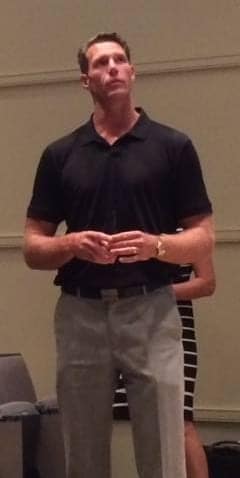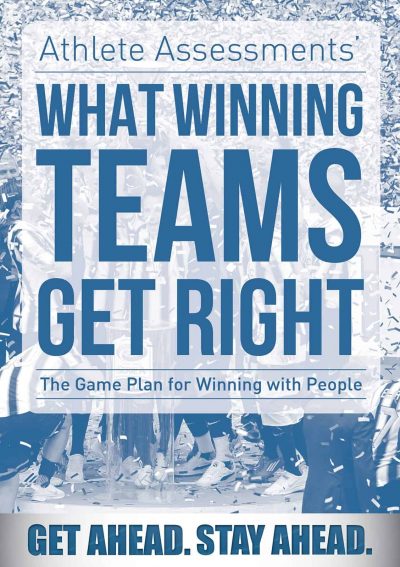Recapping Athlete Leadership and Coaching Resilience at the National Sports Leadership Conference
![MP900430563[1]](https://www.athleteassessments.com/wp-content/uploads/2015/08/MP9004305631-682x1024.jpg) Here’s two statistics you’re sure to be interested in. 98% of coaches surveyed believe that having an effective team captain positively impacts their teams’ winning percentage. No surprise there. But what may surprise you is that the same research into Leadership Development in College Sport found just 37% of coaches believed their captains were prepared to handle the responsibilities and challenges of leadership.
Here’s two statistics you’re sure to be interested in. 98% of coaches surveyed believe that having an effective team captain positively impacts their teams’ winning percentage. No surprise there. But what may surprise you is that the same research into Leadership Development in College Sport found just 37% of coaches believed their captains were prepared to handle the responsibilities and challenges of leadership.
Given that athlete leadership can improve both a team’s win loss record and off field behavior, you would assume leadership development is at the forefront of the curriculum for elite and collegiate athletes. Unfortunately you would be wrong. In fact, 73% of the coaches surveyed reported their respective colleges offered no formal leadership training at all. Now that’s scary.
From our work in college sport, we have noticed there is growing awareness that student-athlete leadership needs to be addressed. Athletic Departments are increasingly implementing student-athlete leadership programs and conferences on Athlete Leadership are becoming more popular.

Liz and Bo Hanson recently presented as keynote speakers at the ‘Play Like A Champion Today National Sports Leadership Conference’ at the University of Notre Dame. In its tenth year, Notre Dame’s Leadership Conference continues to educate those with a connection to youth, high school and collegiate sport on how best to develop athletes as people through sport. This focus is aligned with Athlete Assessments’ goal, to help athletes achieve greater performance through enhancing the people side of sport.
The Athlete Assessments duo presented together alongside a host of influential coaching, managing and athletic personalities including former Los Angeles Lakers basketball player, Tommy Hawkins, Director of the International Association of Athletic Administrators and Coaches, Kirby Boychuck as well as numerous other industry leaders. Attendees included coaches, managers, sporting officials, administrators, parents and athletes.
Understandably, Bo enjoyed presenting at the conference:
“It was great to be presenting at a conference that holds a congruent set of values and philosophy on sport that we do. Firstly, it’s important that we understand athletes as people. If we can teach coaches to provide a more humanistic environment, then we can get the best out of our athletes. From here we can raise self-awareness, enjoy better relationships between team members and develop effective leaders.”
Liz also relished the opportunity to present at the conference:
“Despite us both presenting at numerous conferences each year, it is rare that Bo and I share the stage. When we presented together, the audience feedback was that they loved seeing our different styles, and perspectives, but enjoyed the consistent conviction to what is most important in sporting performance. To be honest, it is a lot of fun for us both. We get to bounce off each other’s energy to create a really engaging and valuable presentation for all attendees. There is also a little healthy competition between us, I have the funnier jokes.”
The aspect of leadership that Bo and Liz highlighted in their presentation was the importance of resiliency for athletes. In reality, athletes are resilient, but they are resilient in their own time. In the competitive sports arena, we don’t have the luxury of time to bounce back slowly. Leaders particularly need to be able to bounce back from setbacks and recover quickly, so they can continue to lead and inspire those around them. Their presentation covered the meaning of resilience, how resilient people behave, the stages of coping and recovery from setbacks, and the key strategies for teaching resilience.
In the following video you can watch Bo speak about his experiences at the conference, and the importance of coaching resiliency in sport.
6 Keys to Creating Resiliency in Athletes through Coaching:
- Resiliency is your ability to bounce back from adversity or get the job done regardless of the scoreboard. Whether you’re in front or behind has no impact on how you perform your task. You do your job, you do your role, you get your job done as best as you possibly can regardless of the external circumstances.
- Resilient people often don’t bounce back from adversity in exactly the same form as they were before they experienced that adversity. There is always some level of change. Once again, it’s their ability to continually get the job done. For example, injured athletes find ways to recreate their game. Older athletes find ways to redefine themselves, often by not relying so much on their pace and speed but on their ability to read the play and the opposition. They still find ways to get the job done.
- As a coach are you either enabling or disabling resiliency? Are you either enabling it to happen or disabling it to happen? As coaches, we need to think about the environment we have created for our players? Often at the highest levels when players come off the field they’re handed a towel to go and take a shower. Once they’re done, someone washes it. The same thing happens for their jerseys and the meals they eat. Their lives are completely structured by someone else. Now is that an environment that is going to foster resiliency?
- Resiliency is a muscle. You have to find a way to exercise that muscle, just like you would if you were trying to improve the strength of your arms or your quads. You need to find a way outside of the competitive environment to exercise that muscle so it can be strong when you need it the most. You provide your athletes with everything they need in terms of equipment and great facilities. But what are they doing for themselves outside of the environment and within it so that they can start to develop and build this muscle?
- On game or competition day, athlete’s need to be able to stand on their own. Certain sports require it more so than others. I come from rowing where if you’re not resilient you will not survive. Simply because the coach is not around, they’re on a speedboat, or on a bike on the side of the course watching you row. You need to be able to make your own decisions, you need to be able to look after the equipment, and you need to be able to do a lot on your own. As a result of that, some of these qualities are developed. Not because we’re special athletes but just because the environment has meant that we need to have these qualities in place.
- Think about the environment you are creating for your athletes. Is it one where you’re either enabling or disabling resiliency? Is it one where you’re doing too much for them by trying to help? Think about the degree to which you need to help them stand on their own two feet, you need to help them solve their own problems. That’s an environment which enable resiliency to happen.
If you would like to read similar articles you may enjoy our unique experience learning Mental Toughness from the US Navy Seals, Why Mental Skills are Important in Sport, Mental Skills in Sport: Preparing your Athletes for Success, and Building Personal and Performance Character.
At Athlete Assessments, we’re here to provide you with excellence in service and to help you be your best. If there is anything we can assist you with, please Contact Us.






